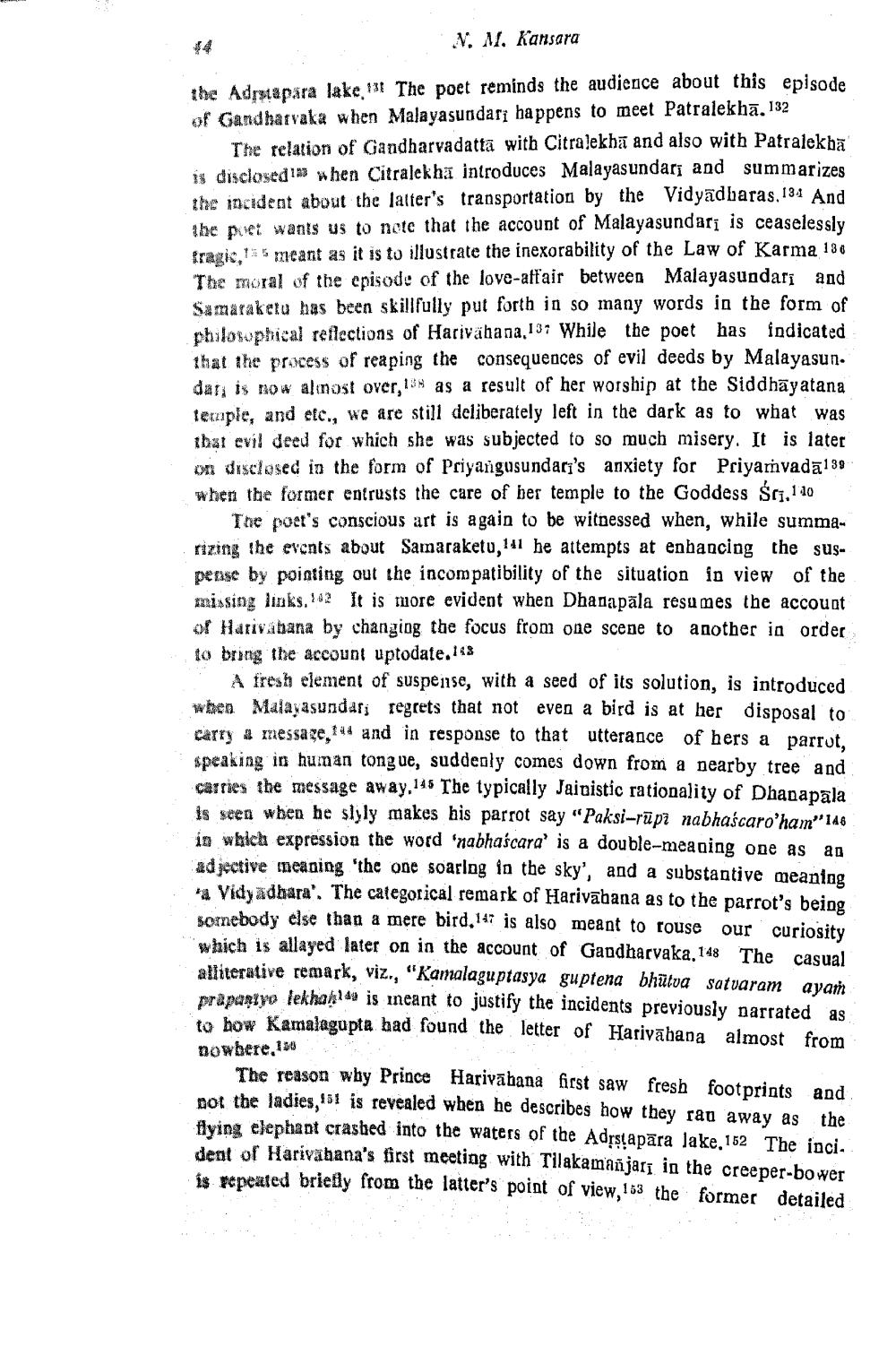________________
V. M. Kansara
the Adrstapara lake 131 The poet reminds the audience about this episode of Gandharvaka when Malayasundari happens to meet Patralekhā. 132
The relation of Gandharvadatta with Citralekha and also with Patralekha is disclosed in when Citralekha introduces Malayasundari and summarizes the incident about the latter's transportation by the Vidyadbaras,134 And the poet wants us to note that the account of Malayasundari is ceaselessly fragis, 15mcant as it is to illustrate the inexorability of the Law of Karma 138 "The moral of the cpisode of the love-affair between Malayasundari and Samaraketu has been skillfully put forth in so many words in the form of philosophical reflections of Harivahana, 137 While the poet has indicated that the process of reaping the consequences of evil deeds by Malayasun. dat is now alinost over, 18 as a result of her worship at the Siddhāyatana tecaple, and etc., we are still deliberately left in the dark as to what was that evil deed for which she was subjected to so much misery. It is later on disclosed in the form of Priyangusundari's anxiety for Priyarvadā139 when the former entrusts the care of her temple to the Goddess Śrī.110
The poet's conscious art is again to be witnessed when, while summarizing the events about Samaraketu, 141 he attempts at enhancing the suspepse by pointing out the incompatibility of the situation in view of the missing links.162 It is more evident when Dhanapāla resumes the account of Harivabana by changing the focus from one scene to another in order to bring the account uptodate.148
A fresh clement of suspense, with a seed of its solution, is introduced wben Malayasundari regrets that not even a bird is at her disposal to carry a message, 44 and in response to that utterance of hers a parrut, speaking in human tongue, suddenly comes down from a nearby tree and carries the message away.145 The typically Jainistic rationality of Dhanapala is seen when he slyly makes his parrot say "Paksi-rūpi nabhascaro'ham"146 in which expression the word 'nabhascara' is a double-meaning one as an adiective meaning the one soaring in the sky', and a substantive meaning
a Vidyadhara'. The categorical remark of Harivābana as to the parrot's being m ebody else than a mere bird.147 is also meant to rouse our curiosity which is allayed later on in the account of Gandharvaka.148 The casual alliterative remark, viz., "Kamalaguptasya guptena bhütva satvaram ayam prâparivo lekhah is ineant to justify the incidents previously narrated as to how Kamalagupta bad found the letter of Harivāhana almost from nowbere, 150
The reason why Prince Harivāhana first saw fresh footprints and not the ladies, 451 is revealed when he describes how they ran away as the Aving elephant crashed into the waters of the Adrstapāra lake,152 The inci. dent of Harivahana's first meeting with Tilakamanjarī in the creeper-bower is repeated briefly from the latter's point of view, 153 the former detailed




